
As part of the discussions during the Conference of the Parties on the Convention on Biological Diversity, in Colombia last November, biodiversity protection and restauration are confronted with financial issues. Furthermore, questions about effectiveness assessment of measures established to restore and maintain biodiversity in a social-ecosystem are also raised.
A scientific consortium composed of the Muséum national d’Histoire naturelle (MNHN) (The French National Natural History Museum), the Fondation pour la recherché sur la biodiversité (FRB) (French Biodiversity Research Foundation) and Carbone 4 launched, in early 2024, a methodological research project based on biodiversity-friendly practices certification. The assessment of the anticipated biodiversity gains associated with the maintenance or set-up of these practices will be achieved thanks to expert consultation and consensus building.
The scientific consortium has designed a method to assess the biodiversity gains associated with biodiversity-friendly practices. It is launching the compendium for two case studies: ‘Arable land and permanent grassland’ and ‘Utilised forests’ in Western Europe. The assessment of gains will be reached thanks to a platform developed in order to allow semi-quantitative ranking of the practices relative to each other. A large-scale expert consultation will be launched soon to validate the hypothesis that a sufficiently robust consensus exists in order to publish the first biodiversity-friendly practices’ ranking.
Temperate mixed-farming or forestry associated biodiversity is in your field of expertise?
We invite you to take part in this assessment on biodiversity gains associated with biodiversity-friendly practices.
The more people who contribute, the stronger the results will be!
Many of you attended the webinar presenting the project and the method for assessing biodiversity gains! If you were unable to attend or would like to see it again, the video of the webinar is now online.
📆 See you in spring
The Puzzling Biodiversity platform, which will enable biodiversity gains associated with forestry and agricultural practices to be assessed, will open in spring 2025.

🔎 More informations about …
Experts consultation : open to academic and non-academic experts. A particular attention will be given to quantifying the degree of consensus to the underlying assumptions of additivity of the various practices listed and the conditions of validity of associating an average gain in biodiversity with the maintenance and/or implementation of a given practice. A critical analysis of the results from the statistical analysis of the data collected during the study will be carried out, including the profile of the respondents. The whole assessment process will take place on an online platform specifically developed for the matter. It has been specifically designed to provide an easy and fluid experience for the users.
The project : the scientific consortium is developing a methodology to evaluate biodiversity-friendly practices. Another part of the project is dedicated to mapping the risks, opportunities, and use cases in connection with a certification process.

![[CALL FOR TENDER] the appointment of a service provider to carry out a literature review on the impacts of European seafood production-consumption chains on biodiversity and society](https://www.fondationbiodiversite.fr/wp-content/uploads/2020/04/LogoFRB_RVB-Web_72DPI.png)
![[FRB-CESAB] Newsletter 11 CESAB – September 2024](https://www.fondationbiodiversite.fr/wp-content/uploads/2024/09/Frb-Cesab-Aquarelle-Pavanee-Angelee-Annasawmy.png)
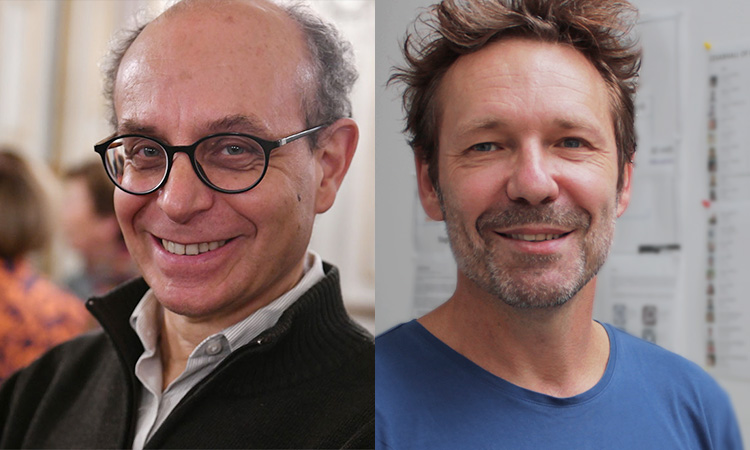
![[FRB-Cesab] Newsletter 10 CESAB – January 2024](https://www.fondationbiodiversite.fr/wp-content/uploads/2024/01/cesab_xmas_web.jpg)

![[Appel à candidatures] En vue de compléter le conseil scientifique de la FRB](https://www.fondationbiodiversite.fr/wp-content/uploads/2024/02/appel_candidatures_CS.jpg)
![[FRB-Cesab] This summer at CESAB, researchers from the three continents gathered to advance knowledge on soil macrofauna in the tropics](https://www.fondationbiodiversite.fr/wp-content/uploads/2023/07/FAUNASERVICE_WS1_web.jpg)
![[FRB-CESAB] Newsletter 9 CESAB – July 2023](https://www.fondationbiodiversite.fr/wp-content/uploads/2023/07/visite-Jules-Guesdes-Lyceens_web.png)

![[BISON project] The results will be presented on 6 June at an international seminar](https://www.fondationbiodiversite.fr/wp-content/uploads/2023/05/Affiche-BISON-Site-FRB.jpg)
![[Call for proposals FRB-MTE-OFB 2022] Nine projects selected within the call “Impacts on terrestrial biodiversity in the Anthropocene”](https://www.fondationbiodiversite.fr/wp-content/uploads/2021/07/AAP_FRB_MTE_OFB_2021_web.jpg)
![[Call for proposals] Two calls on biodiversity opening «DataShare» and «Anthropogenic pressures and impacts on terrestrial biodiversity»](https://www.fondationbiodiversite.fr/wp-content/uploads/2022/04/AAP_DATASHARE_web.jpg)
![[FRB-CESAB] Newsletter 8 CESAB – January 2023](https://www.fondationbiodiversite.fr/wp-content/uploads/2023/01/2022_post_doc_photo1_web.jpg)
![[Call for projects FRB-CESAB 2022 and DataShare] Five projects selected](https://www.fondationbiodiversite.fr/wp-content/uploads/2020/09/AAP_BLANC_2020_web.jpg)
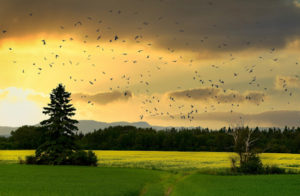
![[FRB-CESAB] Newsletter 7 CESAB- Septembre 2022](https://www.fondationbiodiversite.fr/wp-content/uploads/2022/08/post_doc_cesab.jpg)
![[Press release] A new method to assess ecosystem vulnerability and protect biodiversity](https://www.fondationbiodiversite.fr/wp-content/uploads/2022/08/FRB_cesab_CP_low_res.jpg)
![[Joint call SYNERGY FRB-CESAB / SinBiose / FAPESP / CEBA] Two new projects on biodiversity in the neotropical realm](https://www.fondationbiodiversite.fr/wp-content/uploads/2021/05/AAP-FR-BR-WEB.jpg)
![[FRB-CESAB] Newsletter 6 CESAB – January 2022](https://www.fondationbiodiversite.fr/wp-content/uploads/2022/01/NL6_cover.jpg)
![[FRB-CESAB] Newsletter 5 CESAB – July 2021](https://www.fondationbiodiversite.fr/wp-content/uploads/2021/07/2020-03-11revised3-1.jpg)
![[FRB-CESAB] Behind the WOODIV paper: the Euro-Mediterranean trees in a database](https://www.fondationbiodiversite.fr/wp-content/uploads/2019/04/FRB-Cesab-Woodiv.jpg)
![[FRB-CESAB / CIEE] Earth’s ecosystems in a time of global change: Six ecologists discuss challenges and solutions](https://www.fondationbiodiversite.fr/wp-content/uploads/2019/11/AAP-FRB-CESAB-CIEE-12-2019-Tom-Fisk-from-Pexels.jpg)
![[Call for proposals FRB-CESAB / ITTECOP] The projects NAVIDIV and BRIDGE selected](https://www.fondationbiodiversite.fr/wp-content/uploads/2020/03/FRB-Cesab_Ittecop_route.jpg)
![[Press release] Study in Nature: Protecting the Ocean Delivers a Comprehensive Solution for Climate, Fishing and Biodiversity](https://www.fondationbiodiversite.fr/wp-content/uploads/2021/03/Photo_CP_web.png)
![[FRB-CESAB] Newsletter 4 CESAB – January 2021](https://www.fondationbiodiversite.fr/wp-content/uploads/2020/10/Formation_ecoinfofair2020.png)
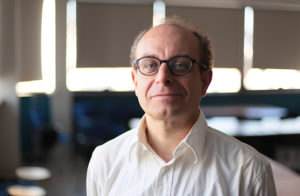
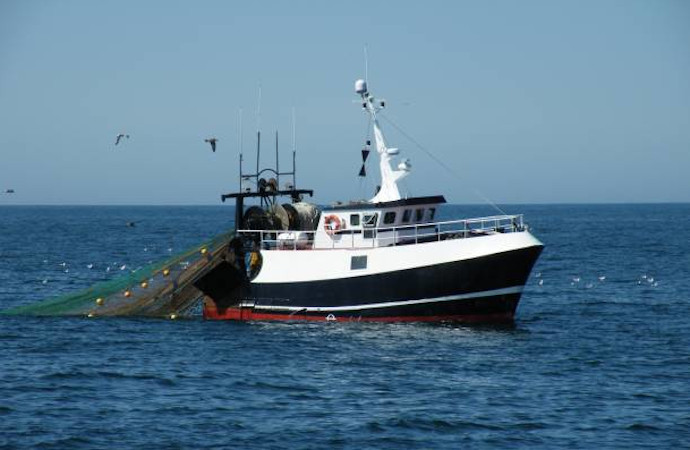

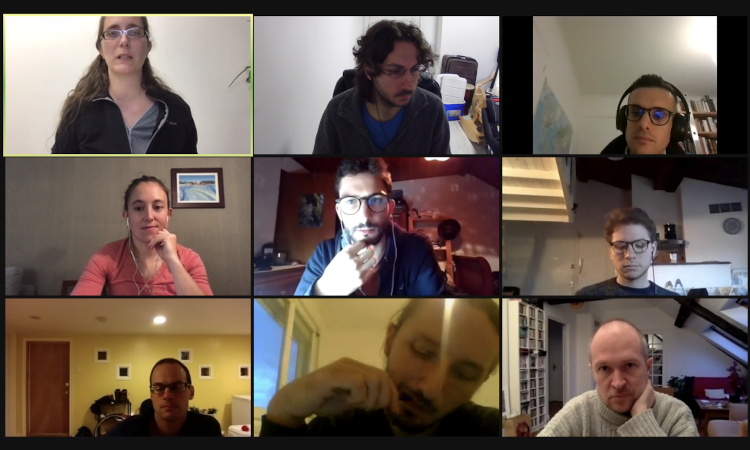
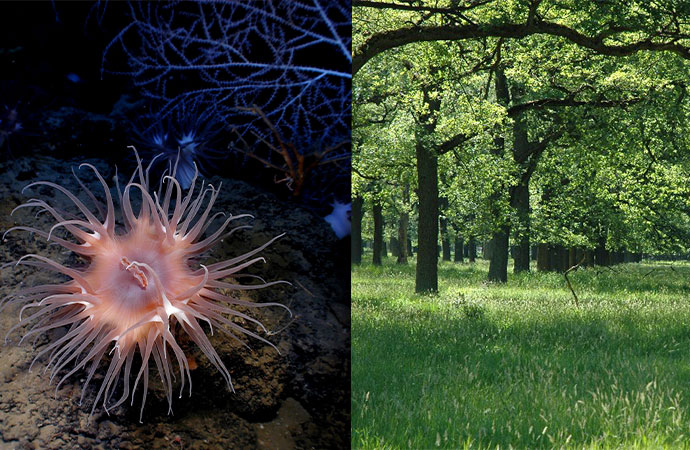
![[FRB-CESAB] Second edition of the training course “Data Toolbox for Reproducible Research in Computational Ecology”](https://www.fondationbiodiversite.fr/wp-content/uploads/2020/11/Com_photo_participants.png)
![[Press release] Double jeopardy for ecologically rare birds and terrestrial mammals](https://www.fondationbiodiversite.fr/wp-content/uploads/2020/10/tamatin_doree_FREE.jpeg)
![[FRB-CESAB] Newsletter 3 CESAB – July 2020](https://www.fondationbiodiversite.fr/wp-content/uploads/2020/06/CESAB_prolonger_web.jpg)
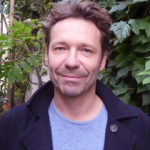
![[FRB-CESAB] Newsletter 2 CESAB – January 2020](https://www.fondationbiodiversite.fr/wp-content/uploads/2020/01/nicolas1.jpg)
![[FRB-CESAB] First CESAB training course](https://www.fondationbiodiversite.fr/wp-content/uploads/2019/12/ok-_site1-1.jpg)
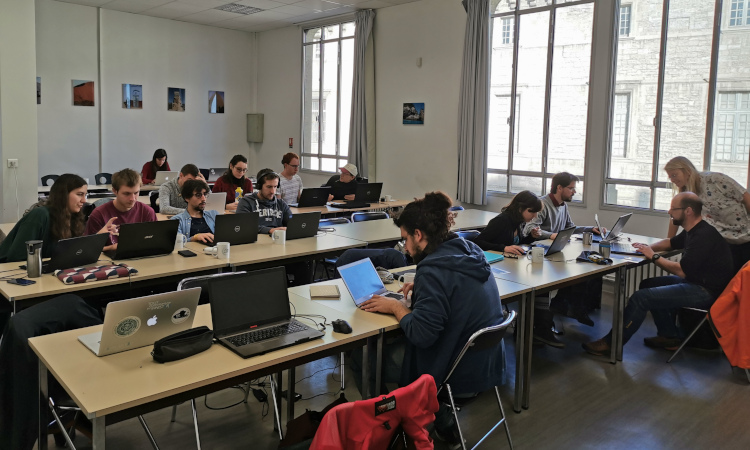
![[CESAB] The project FAIR_Data hosted by CESAB](https://www.fondationbiodiversite.fr/wp-content/uploads/2019/10/Image-d’iOS.jpg)
![[FRB-CESAB] Newsletter 1 CESAB – July 2019](https://www.fondationbiodiversite.fr/wp-content/uploads/2019/06/CESAB_IBB2.jpg)